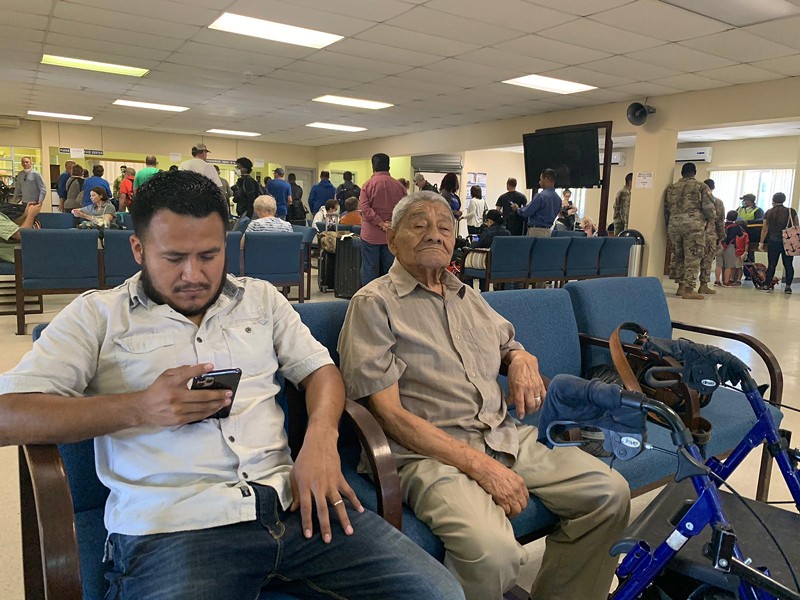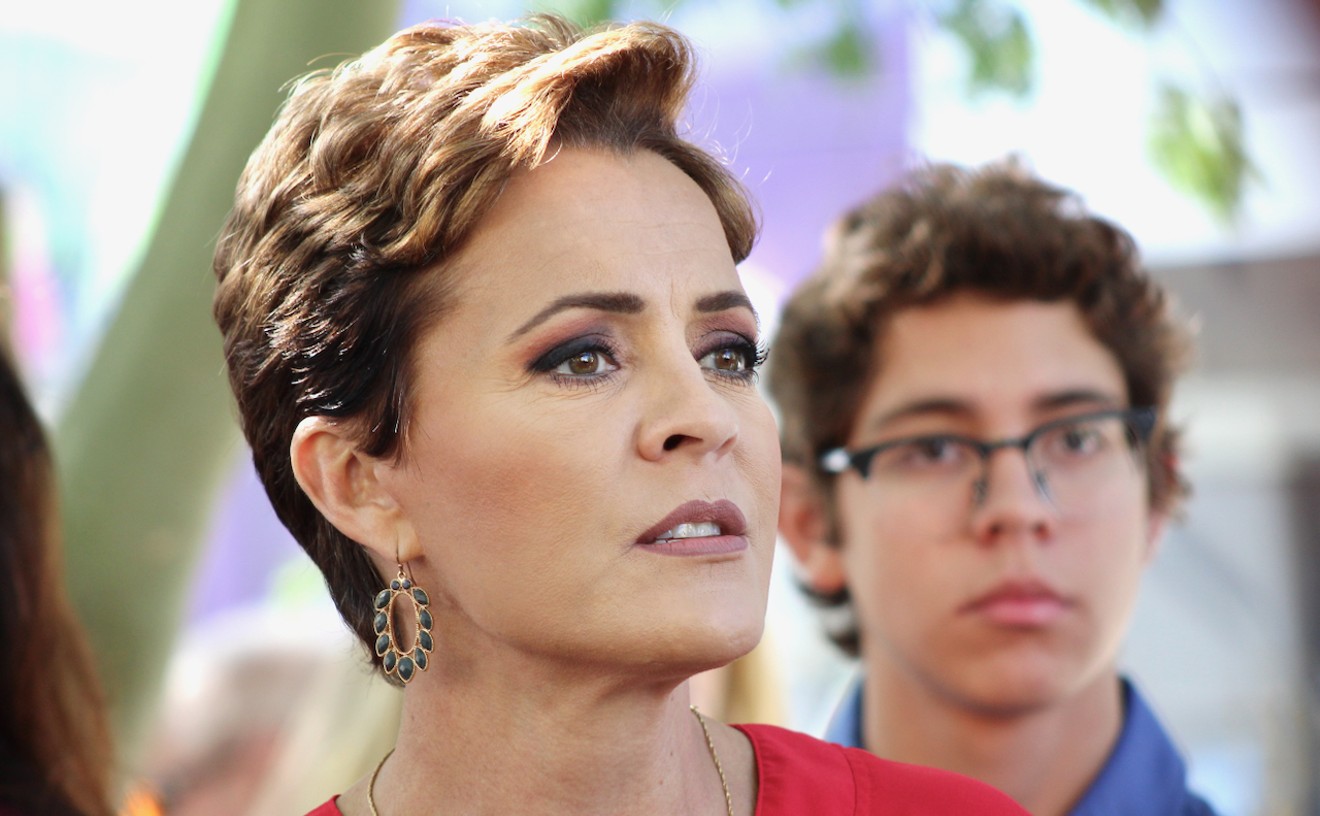Now, Vasquez, an army veteran, is again trying to enter the United States. Only this time, she’s a United States citizen – one of an estimated 13,000 that are trapped abroad due to the novel coronavirus pandemic.
On March 19, the United States government advised all its citizens to avoid international travel due to the global impact of COVID-19, which is now on every continent but Antarctica. But the advisory did little to help people like Vasquez’s family, who left Phoenix for San Pedro Sula, Honduras, a week earlier. They were still there when the country closed its borders on March 15.
The exact numbers for Honduras are not available, but Ian Brownlee, principal deputy assistant secretary for the Bureau of Consular Affairs at the State Department and lead for the department’s repatriation task force, said there are several thousand Americans requesting the federal government’s help leaving the country.
Through a mix of commercial and federally facilitated flights, hundreds of United States citizens are flying out of Honduras daily. But many still remain.
On Saturday, the U.S. military flew home a 55-person team of U.S. women’s football players who were stranded in Honduras, where they’d traveled to compete in the Americas Women's Bowl. And this week, Immigration and Customs Enforcement began transporting American citizens back on return trips for ICE Air flights that had deported Honduran and El Salvadoran people – so far, two of those flights from Honduras have returned with Americans in tow, bringing a total of 272 people from both countries combined.
The State Department has said it’s prioritizing the most vulnerable first, including those who are most at risk for contracting the novel coronavirus, according to Brownlee.
But this determination process has been relatively opaque to many stranded travelers, leaving citizens like Vasquez, whose father is 95 years old, frustrated and wondering what led the federal government to prioritize a football team over her family.
Now, as United States citizens run out of money and patience, private companies have begun to descend on Americans with costlier offers to fly home.
At 45, Vasquez has lived an international life. She was sworn in as a citizen while on duty in South Korea. She was deployed to Iraq, wounded, and returned to Phoenix after receiving medical retirement in 2015.
Every year, she picks up and drops off her father in their country of birth, Honduras. The United States winters are too cold for her father, even in Arizona. Each March, as spring begins, she and her husband travel to accompany him up from his winter house back to the United States. They’d arrived in Honduras just two days before the country closed its borders to international travel due to COVID-19.
Waiting for the Right Flight
People waiting to get out of Honduras have been describing their troubles on Facebook.Problems include coordinating commercial flights, which are often canceled before takeoff, and traveling to various airports within the country, which requires obtaining a letter of permission to move from the U.S. embassy.
Money is becoming tight for Vasquez, who said that it was difficult to to receive extra money from other family members: Honduran banks are closed, and many ATMs have run out of money. Getting supplies is difficult, as stores are often closed, and traveling to other cities or areas is prohibited due to the shelter-in-place rule.
Her family has now booked three tickets through Spirit Airlines, all of which were eventually canceled. And because Spirit Airlines is offering flight credits rather than direct refunds, they’ve now spent $4,000 on flights they haven’t taken.
Vasquez has wondered if, should they explain the situation to the company, Spirit Airlines would make an exception — but it’s a paralyzing gamble of losing a shot at future flights while competing with hundreds of other Americans trying to leave the country.
“I don’t want to ask for a refund, because right now I have the hope that they will want to put us on another flight,” she said.
Spirit has not yet responded to requests for comment.
American Airlines and United Airlines, two private air companies that the State Department has been working with to coordinate repatriation flights, will have next-day flights quickly appear as available. (Currently, most airlines are not listing flights available until April 24 at the earliest). The U.S. government will announce these flights, and then a frenzy to purchase ensues. But American buyers in Honduras said these flights are often eventually canceled as well.
“We contacted the embassy,” said Lauren Ashley, an American who works at an orphanage in Tocoa, Honduras, and who has been working to get her visiting mother home to Florida. “We played their game and followed instructions and received nothing. They encourage you to call commercial airlines. Commercial airlines charge you for new tickets and then cancel, no refund, future credit.

Marta Vasquez, 45, and her husband and father in Honduras, before the borders closed on March 15.
Marta Vasquez
In light of this, many are considering turning to chartered flights that may cost upward of $16,000 to book.
“I stopped depending or trusting what the embassy, state department, or commercial airlines were doing,” said Alexa Marie, who traveled with her Honduran husband for a family visit on March 3, in a Facebook message to New Times. She said she had “absolutely not” had luck with the United or American flights posted on the State Department’s website. “My husband and I booked a private charter flight to get out. We are about to board as I type.”
Brittaney Jo Lehman and her husband, of Rochester, Minnesota, ended up booking a $17,000 charter for a seven-person flight after three United flight cancellations. The couple have been in Honduras since March 13. “We have two children – a 1-year-old boy and 3-year-old girl,” she said in Facebook message to New Times. “We miss them dearly.”
Marie said she was originally going to pay $16,000 for a six-person flight, but found a cheaper charter through Global Guardian at $1,300 per person at the last minute.
“It was still expensive, but much cheaper than mine,” she added.
“I understand that [charters] are a way out, but many people do not have that money to pay at the moment, especially when the other airlines have not refunded the money from the other canceled flights,” said John Pleites of Houston, who said he’s still struggling to get about $1,300 refunded from United. “There are people with multiple family members, of up to five to eight in each group. That’s $6,500-plus, for a family of five, to get back home. This is an injustice to humanity, especially in a world crisis and emergency as such as this one.”
On Wednesday morning, one more canceled commercial flight later, Vasquez, her husband, and her elderly father drove to Soto Cano Air Base, a Honduran military base, to see if they’d be able to board a waiting U.S. military cargo plane. Thanks to her military retiree status, they’d been placed on standby for a flight to Virginia.
After waiting in suspense, they boarded the U.S. Air Force C-130J aircraft, sending one last message to New Times.
“I got on it on my own because of my military service,” she said via WhatsApp, noting there were few other civilians boarding the craft. “However, in this flight is mostly people from the embassy, or U.S. officials, and active duty families.”
The rest of their journey home remains to be seen.
So far, the State Department has returned 9,000 Americans home from 28 countries, according to Brownlee of the State Department. They’re planning 66 more flights over the next nine days.
United Airlines has not yet responded to requests for comment. American Airlines noted it is giving full refunds, not just vouchers for future travel, and none of the people New Times spoke to had issues with refunds via American.
NOTE: The State Department is urging all U.S. citizens trapped overseas to enroll in the Smart Traveler Enrollment Program (STEP) at step.state.gov to they receive the latest updates on travel from their current country, including possible repatriation flights, from the local U.S. embassy.
Americans can also call the department at 888-407-4747 within the U.S. or 202-501-4444 outside the U.S.









